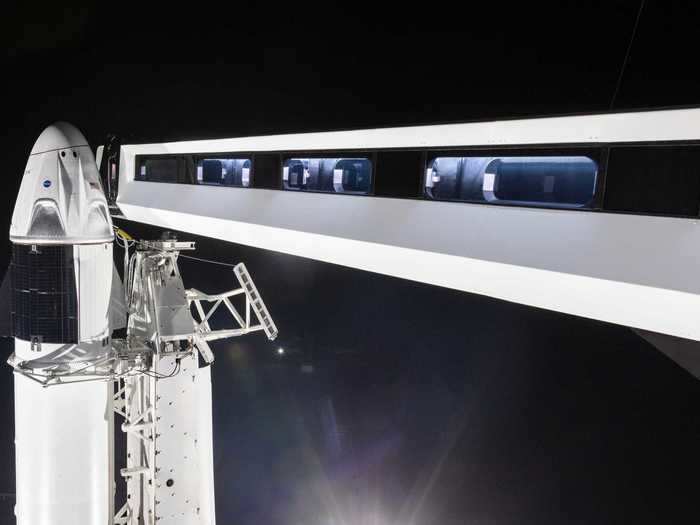SpaceX is about to launch its riskiest and most critical mission to date. See how the rocket company hopes its first flight with NASA astronauts plays out.
Dave Mosher

- Eighteen years after Elon Musk founded SpaceX, the rocket company is preparing to launch its first people.
- On May 27, NASA astronauts Bob Behnken and Doug Hurley will board SpaceX's new Crew Dragon spaceship and ride it to space atop a Falcon 9 rocket.
- The Demo-2 test mission for NASA will launch from Kennedy Space Center in Florida and take about nine minutes to reach orbit.
- Behnken and Hurley will test out Crew Dragon's systems during a day-long journey to the International Space Station.
- The astronauts will live on the space station for about 3 months before they climb back inside the space capsule, return to Earth, and parachute into the Atlantic Ocean.
- Visit Business Insider's homepage for more stories.
Elon Musk formed SpaceX in 2002. Since then, the company has turned the spaceflight industry upside-down with dozens of reusable rocket launches.
For all its achievements, though, SpaceX has never flown a single person into space.
That will change on May 27 — weather and luck permitting — when NASA astronauts Bob Behnken and Doug Hurley put on spacesuits, climb aboard SpaceX's new Crew Dragon spaceship, and ride the gumdrop-shaped vehicle into orbit atop a 23-story Falcon 9 rocket.
The astronauts' Demo-2 mission will be SpaceX's first human-rated flight and its second full test flight for NASA's Commercial Crew Program. The goal of the roughly $8 billion effort is to restore American access to space with commercial partners; NASA retired all of its space shuttles in July 2011, and SpaceX is poised to achieve the feat before its competitor, Boeing.
Demo-2 will ferry the astronauts to the International Space Station (ISS), where they may stay for more than 100 days.
Here's every notable step of SpaceX's first crewed flight, which will be the company's most critical, dangerous, and historic mission to date.
Read the original article on Business InsiderA successful Demo-2 mission would also tee up a bright future for SpaceX, NASA, and the future of commercial spaceflight.
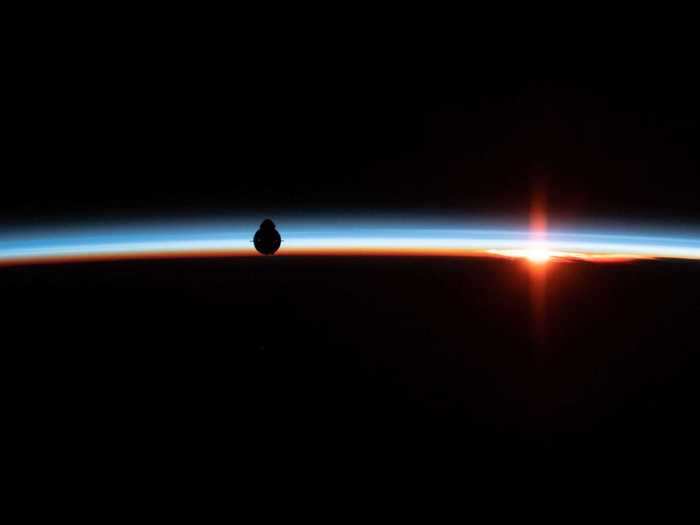
If all goes well, Demo-2 will set the stage for SpaceX's first operational mission with NASA astronauts Victor Glover and Mike Hopkins, who may fly to the ISS before the end of the year.

SpaceX's GO Searcher ship will be at the ready with a helicopter in case Behnken or Hurley need to be rapidly evacuated to land for medical attention.
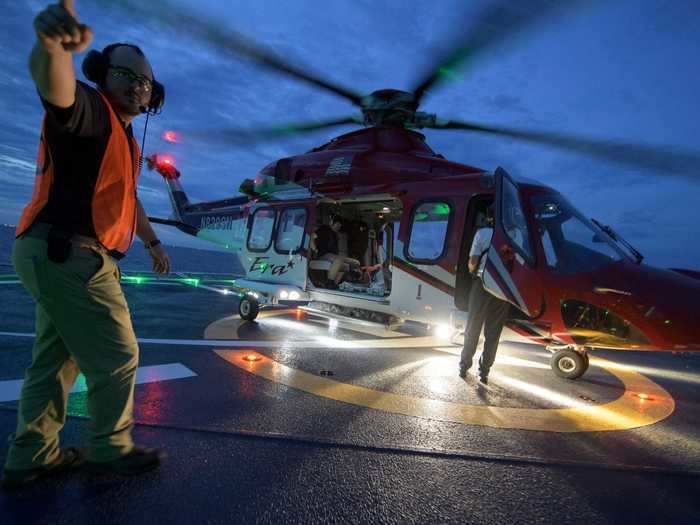
Minutes later, Crew Dragon will deploy a series of parachutes to splash down in the Atlantic Ocean just off the coast of Cape Canaveral.
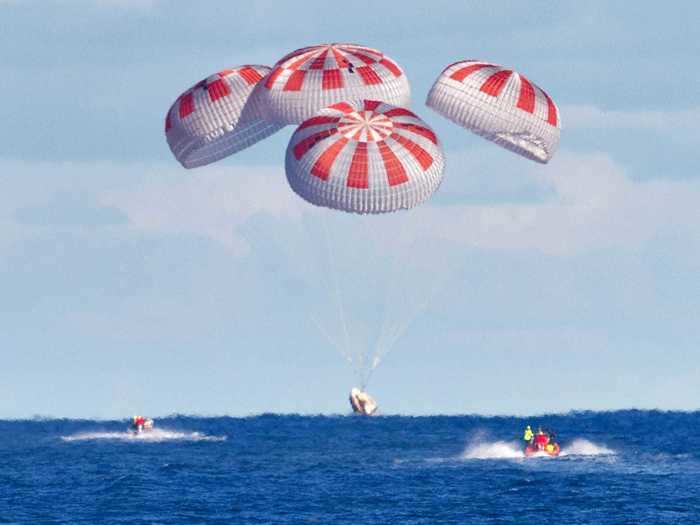
This will expose the capsule's heat shield, which will plow through Earth's atmosphere, generate superheated plasma, and help bleed off the energy of moving at dozens of times the speed of sound.
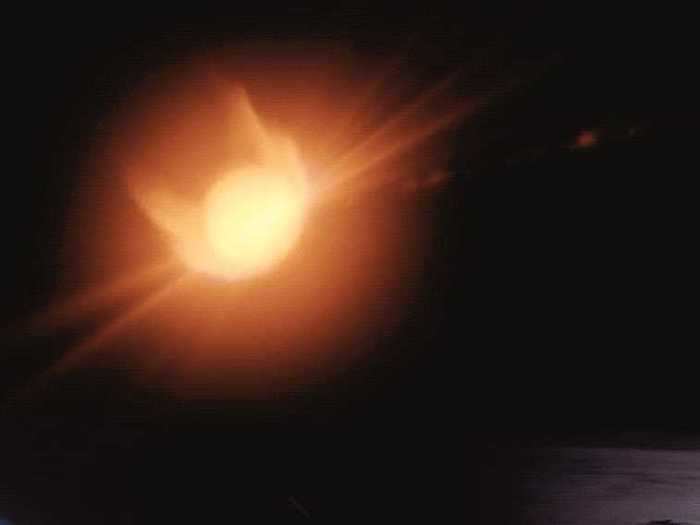
Crew Dragon will fly away from the ISS until it's in position to shed its tube-like trunk, a lower section outfitted with fuel tanks, solar panels, and other hardware the astronauts will no longer need.
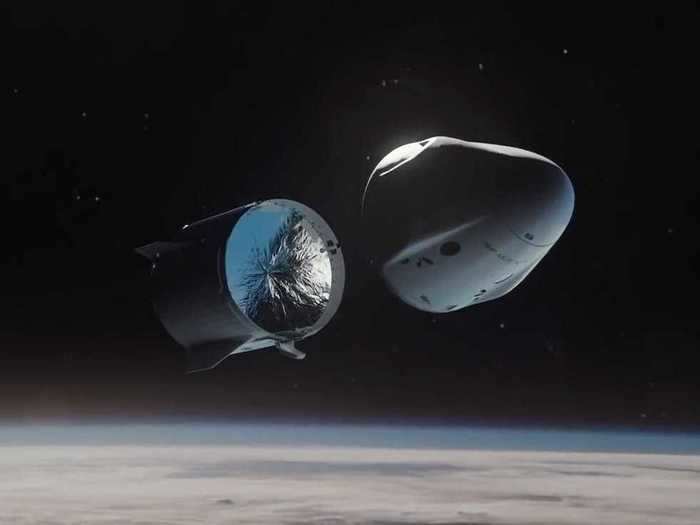
Their return to Earth is supposed to follow a timeline like this one.
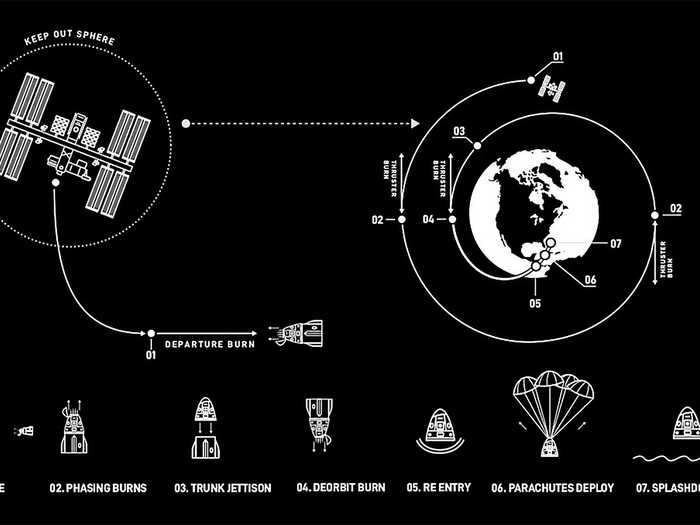
Back inside Crew Dragon and suited up, Behnken and Hurley will bid the space station farewell.
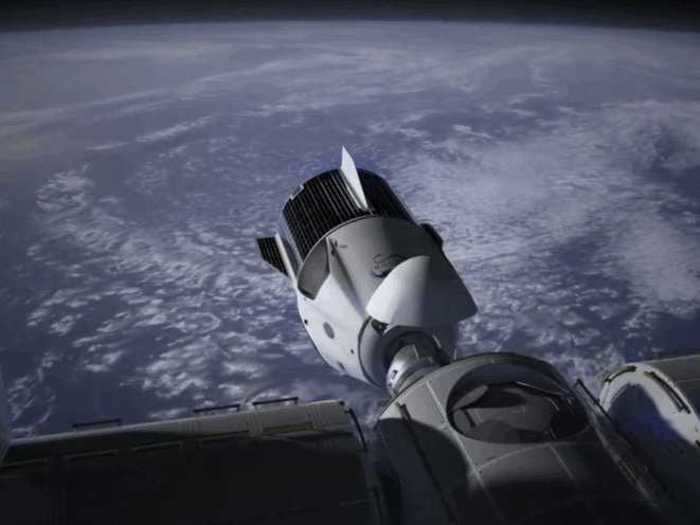
"I understand it's going to be sort of like a capture the flag moment here for commercial spaceflight. So good luck to whoever grabs that flag," then-President Barack Obama said on July 15, 2011.
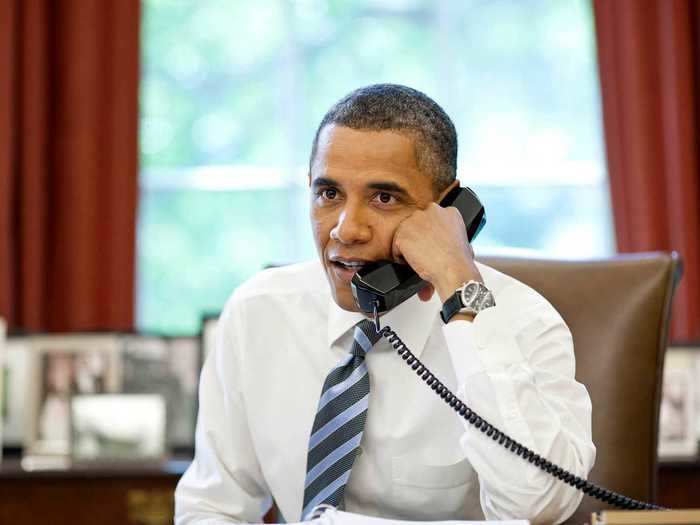
Source: NASA via YouTube
Before Behnken and Hurley leave, though, they'll grab a historic memento: an American flag flown on the first space shuttle mission and left by the crew of NASA's final space shuttle flight, of which Hurley was a member.
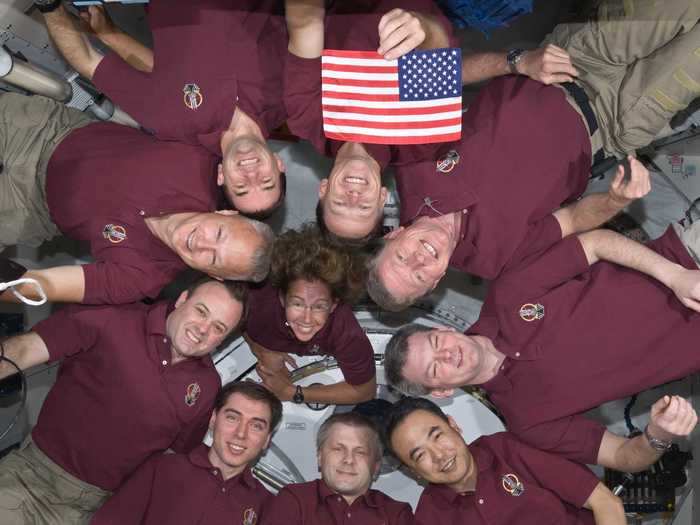
The Demo-2 crew will begin a stay in orbit that may last up to 110 days. Future SpaceX crews may linger for more than six months.
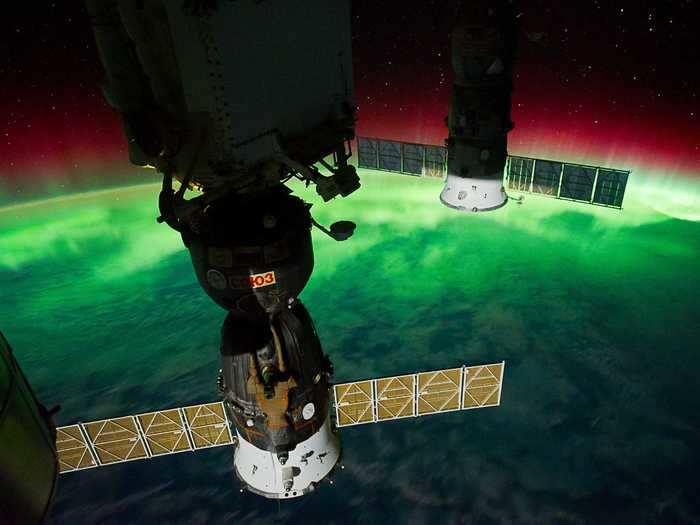
The three-person crew of Expedition 63, commanded by fellow NASA astronaut Chris Cassidy, will be waiting to greet Behnken and Hurley once the hatches open.
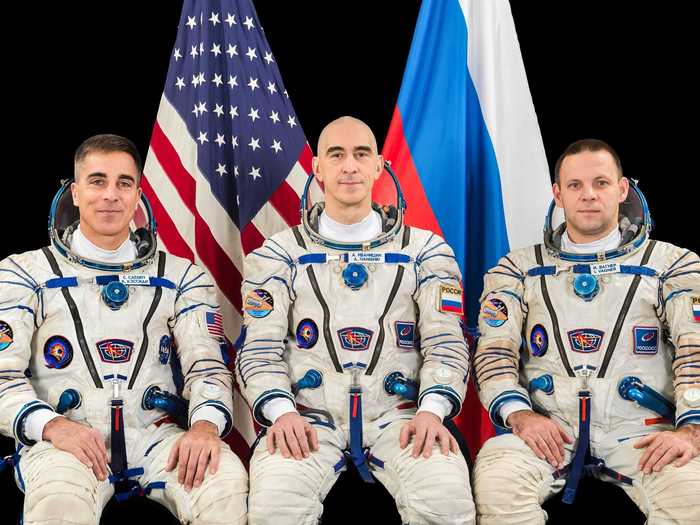
Once they show the new interface works, Crew Dragon's computer will resume control, propel the spaceship to its port, and berth it to the ISS.
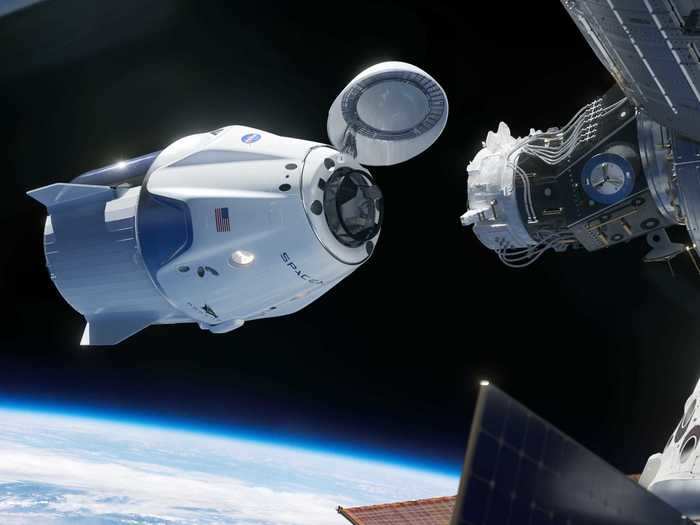
At that point, the astronauts will try out their spaceship's all-new touchscreen docking controls — just in case there's a problem with the automated system.
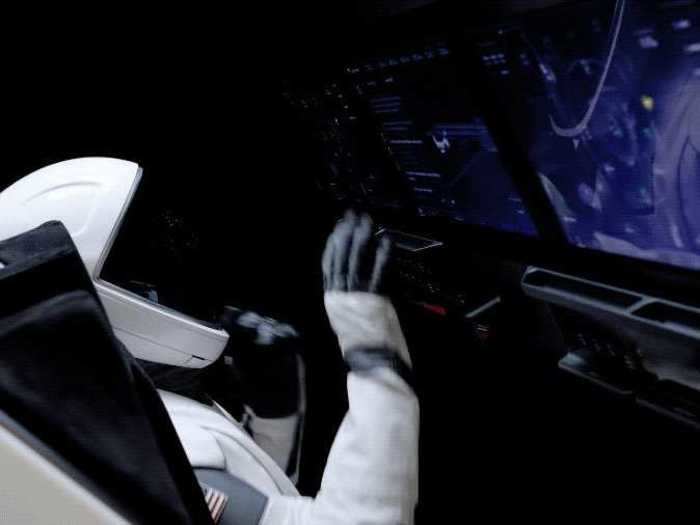
Crew Dragon will pull up to a spot about 220 meters (722 feet) in front of the ISS.
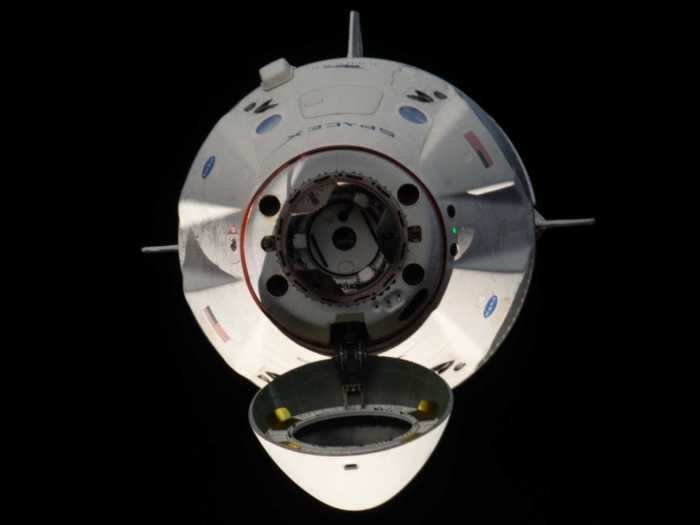
After about 15 hours of flying above Earth, the space station will come into view.
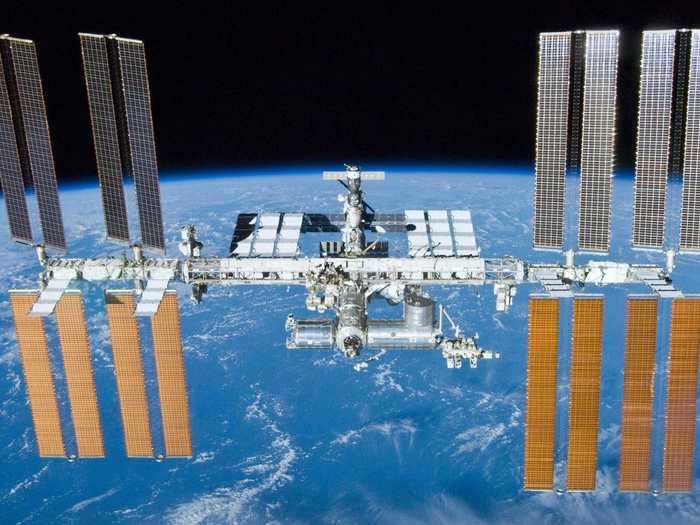
The phases for this stage of SpaceX's Demo-2 mission look like this.

Once Behnken and Hurley safely reach orbit, they'll climb out of their spacesuits, begin a series of tests, eat, and get some much-needed rest.
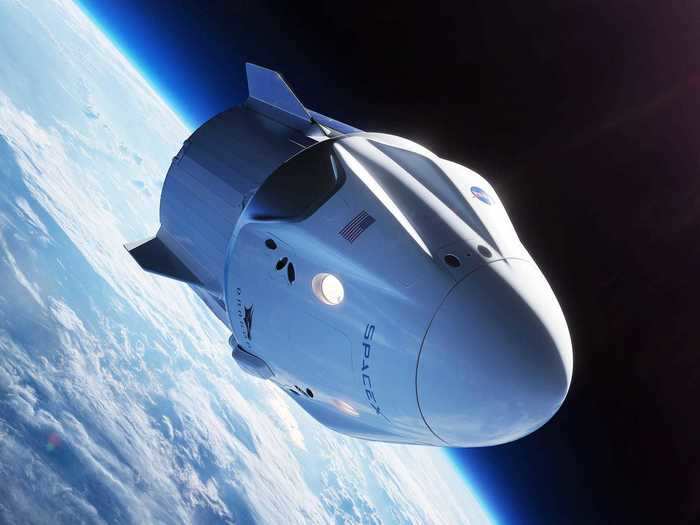
If there's a major problem with the rocket en route to orbit, the escape system is designed to automatically pull Crew Dragon away from danger.
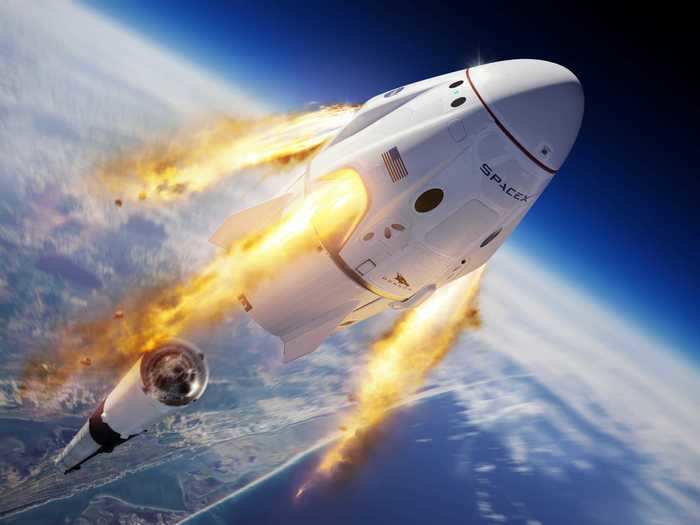
The crew's journey to space will look something like this. Once the Falcon 9 rocket booster expends most of its fuel, it will detach from the upper stage and attempt to land on a boat at sea to fly another day.
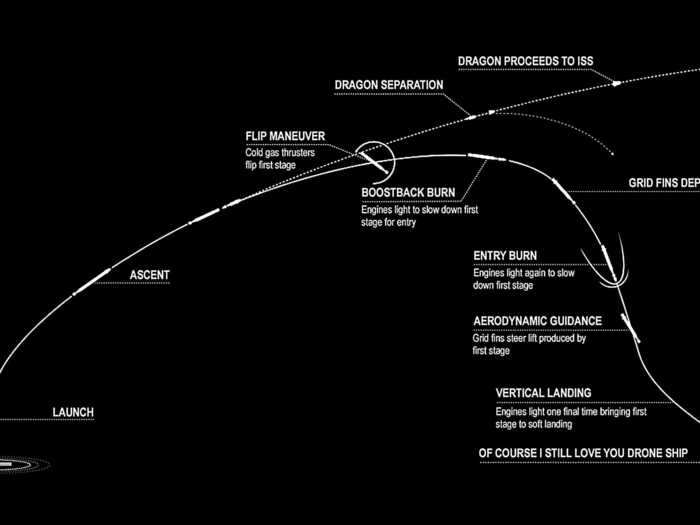
The force of launch will press them into their seats as the Falcon 9 spends roughly the next nine minutes accelerating Crew Dragon to 17,500 mph. That's about 10 times as fast as a bullet and the speed required to orbit Earth at the space station's altitude.
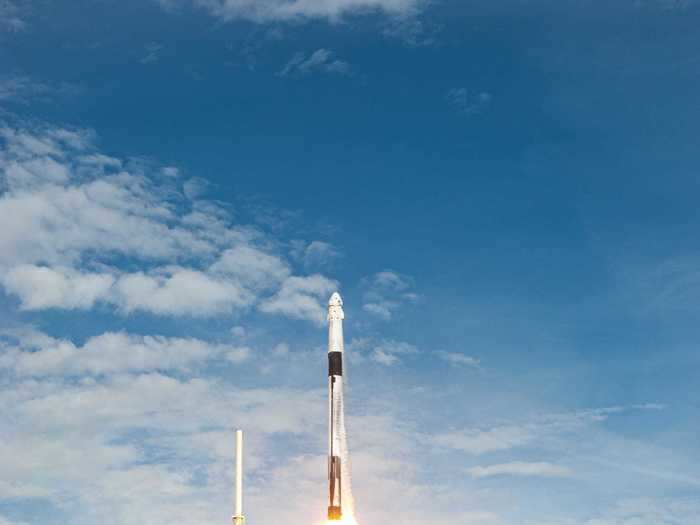
Once the rocket is fueled and the clock counts down, Behnken and Hurley will wait through some of the longer seconds of their lives.
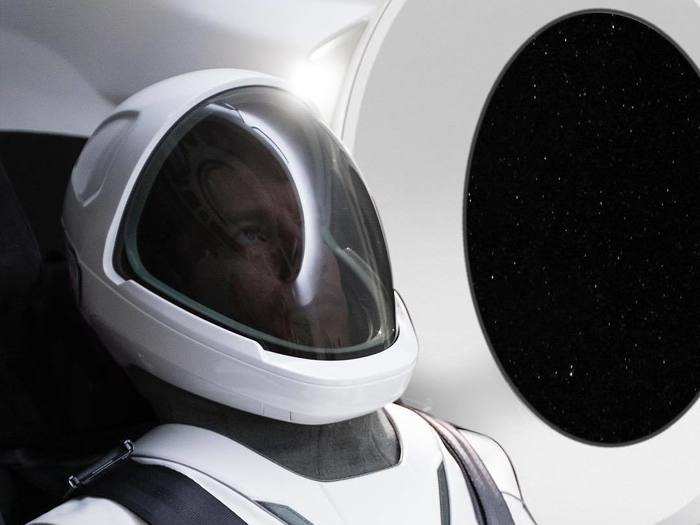
SpaceX showed the escape system works by launching a Crew Dragon atop a Falcon 9 rocket on January 19. During the most strenuous part of the flight, the ship — empty save for a mannequin — safely flew away from the doomed rocket.
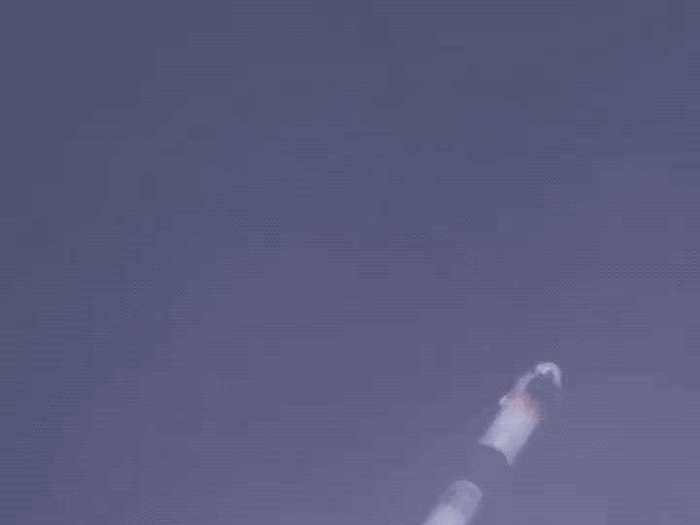
About 45 minutes before liftoff, the astronauts will arm a launch escape system — just in case anything goes wrong during a roughly half-hour fueling procedure called "load and go," which NASA approved in 2018.
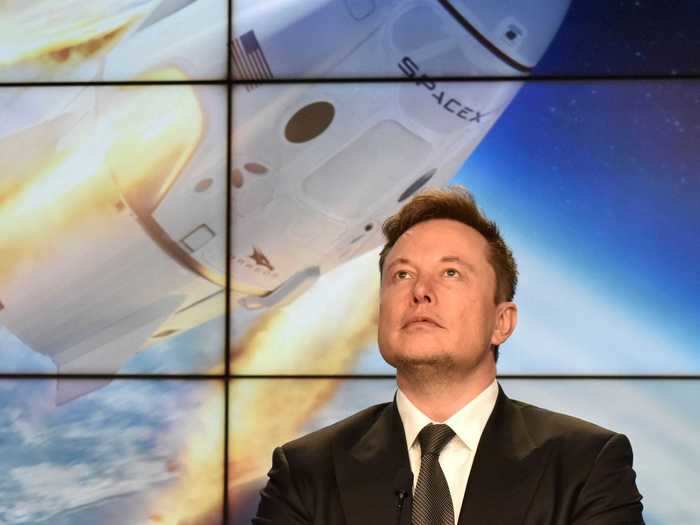
Source: Space News
Next comes a thorough checklist of items before launch.
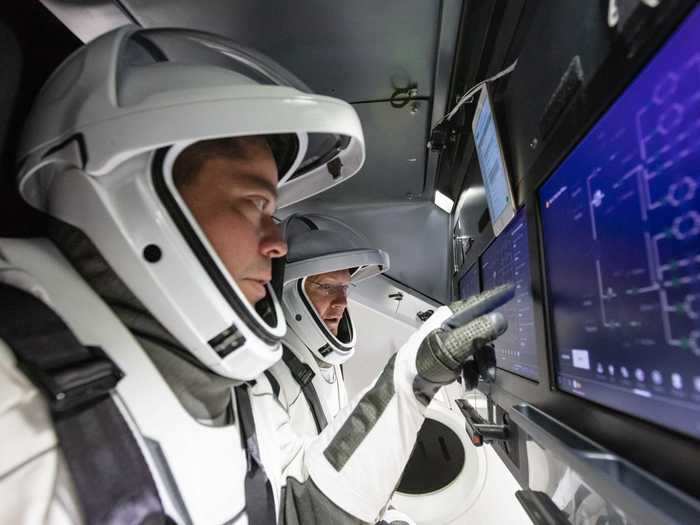
SpaceX staff will buckle the astronauts into their reclined seats, wave goodbye, and seal the hatch.
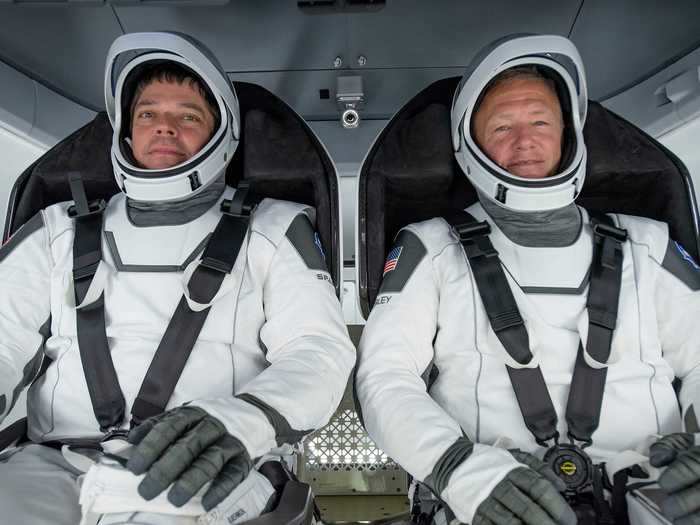
... And crawl into the white cabin of the Crew Dragon spaceship.
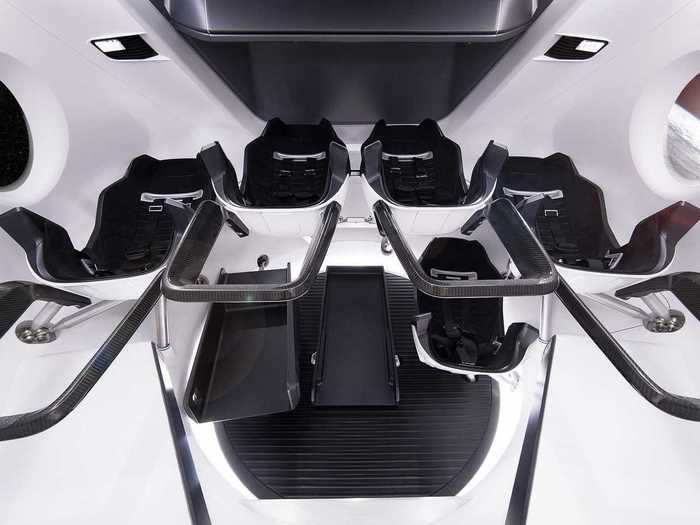
The arm will connect to a rectangular hatch on the side, where Behnken and Hurley will worm their way through...
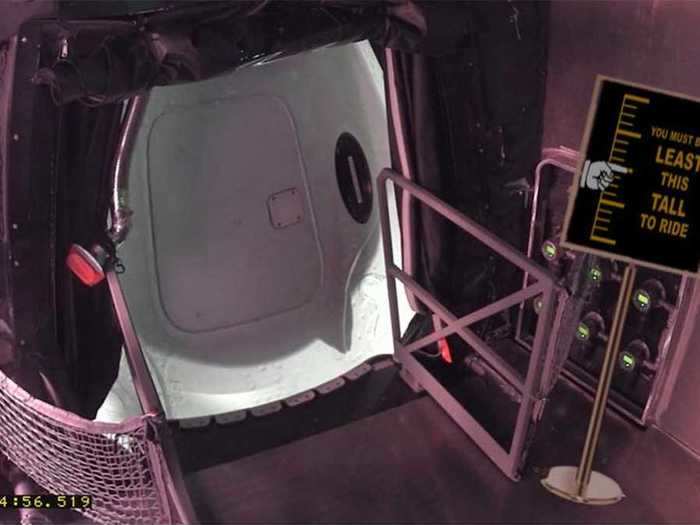
... Then walk down an access arm to their spaceship. Just before boarding Crew Dragon, the astronauts will give a family member a traditional phone call. "Hopefully, we get a person and not an answering machine," Behnken said on May 1.
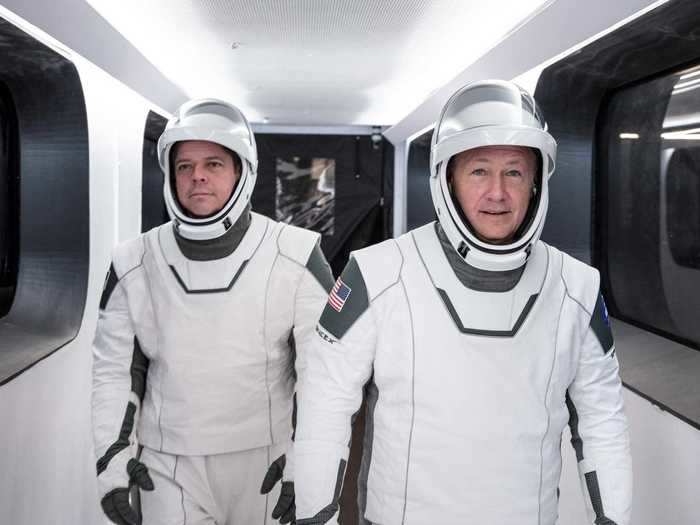
Source: Business Insider
A few hours before launch, Behnken and Hurley will be helped into their spacesuits. The garments are made to protect the astronauts from a sudden loss of air pressure and even fire.
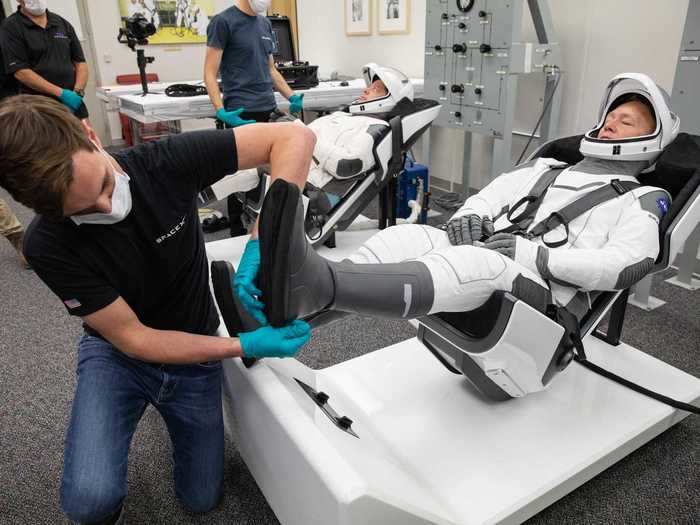
NASA gets one more chance to call off the mission on May 25 with a launch readiness review. If the weather holds and the review goes well, SpaceX — and the astronauts — will have a green light to make history on May 27. (The backup launch day is May 30.)
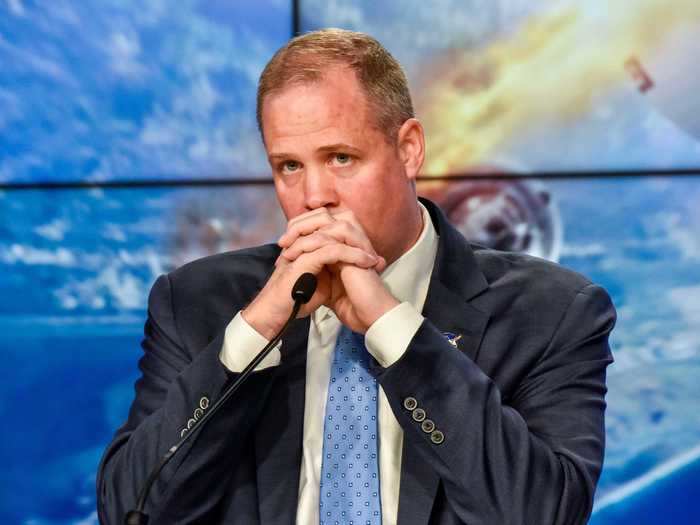
If the test-firing goes well, Behnken and Hurley will drive out to the launchpad on May 23 to conduct a full launch dress rehearsal with SpaceX to ensure everyone and everything is ready for flight.
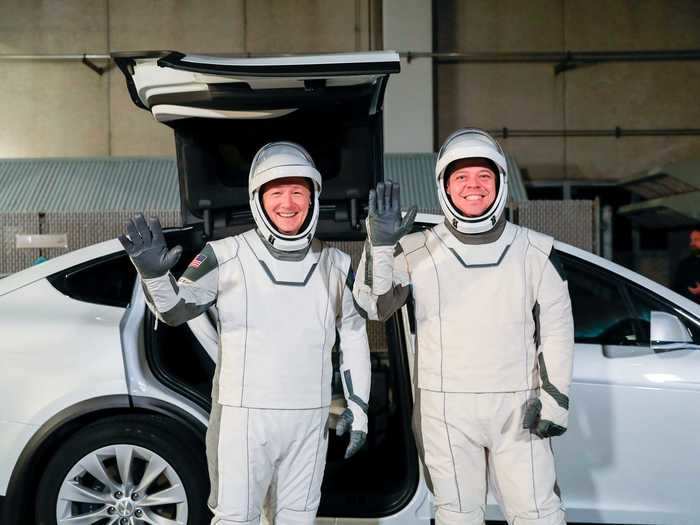
During static-fire tests, SpaceX pumps super-chilled liquid oxygen and kerosene fuel into the rocket's tanks. Then they fire the rocket booster's nine Merlin engines for a few seconds to ensure there are no problems.
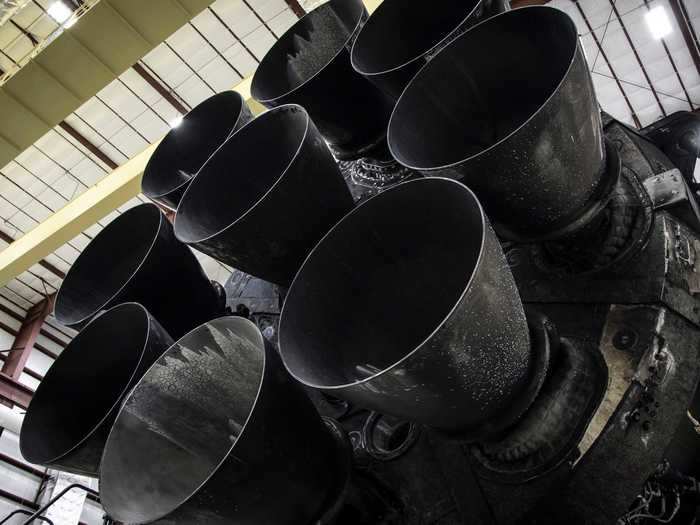
After it's clamped down and checked out, SpaceX will conduct a static fire test on May 22.
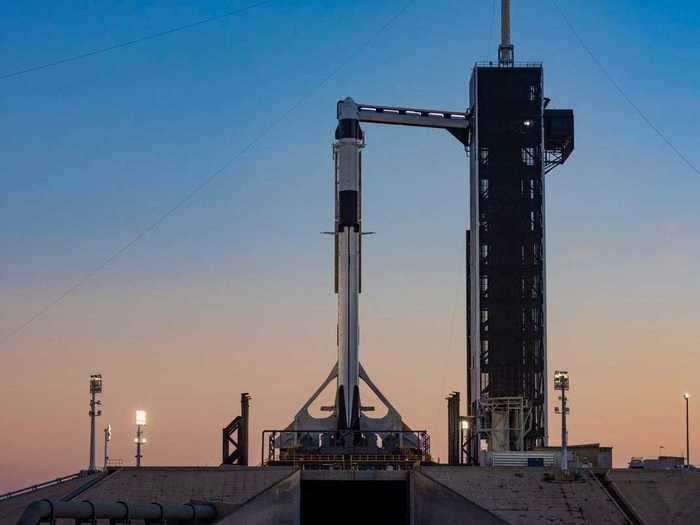
Source: Spaceflight Now
... And lift the rocket into a vertical position on the launchpad.
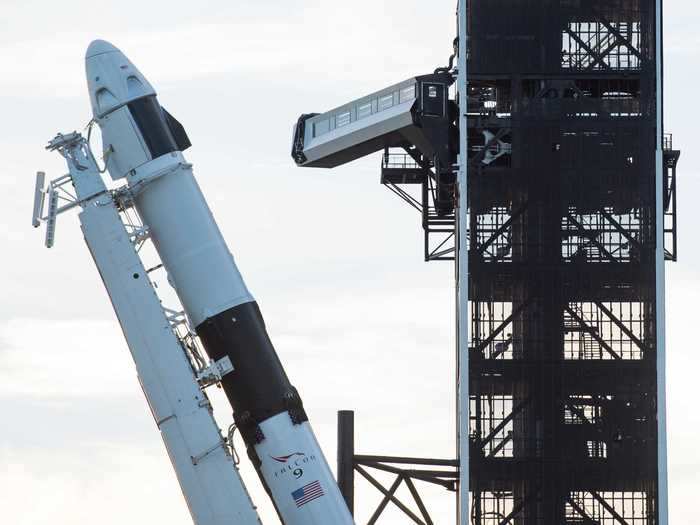
A few days before liftoff, SpaceX will roll the stacked Crew Dragon spaceship and Falcon 9 rocket out of its hangar at Launch Complex 39A ...
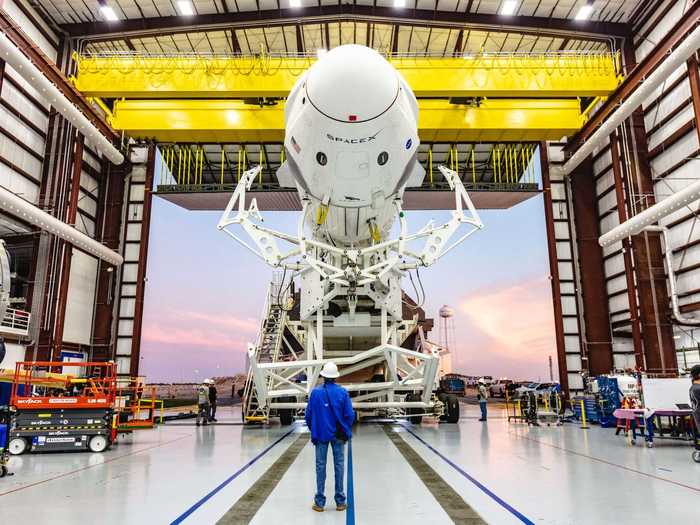
NASA will give Demo-2 a flight readiness review around May 21. If it goes well, SpaceX will kick off a series of final preparations for launch.
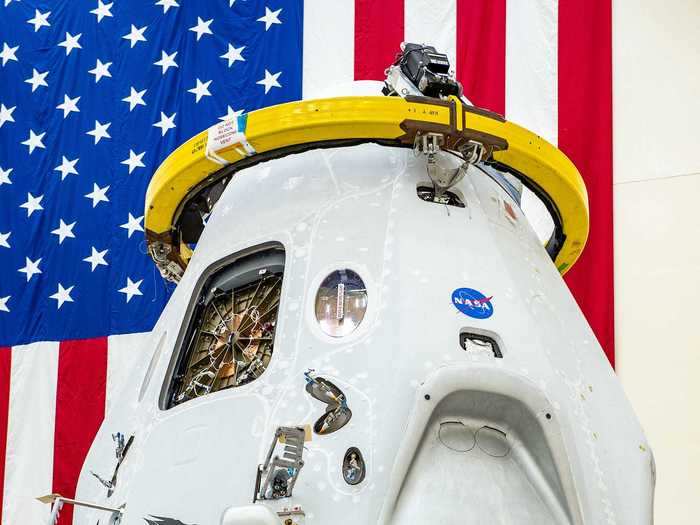
Source: Spaceflight Now
On May 20, Behnken and Hurley will fly to Kennedy Space Center (KSC) in Cape Canaveral, Florida, to finish up quarantine there.
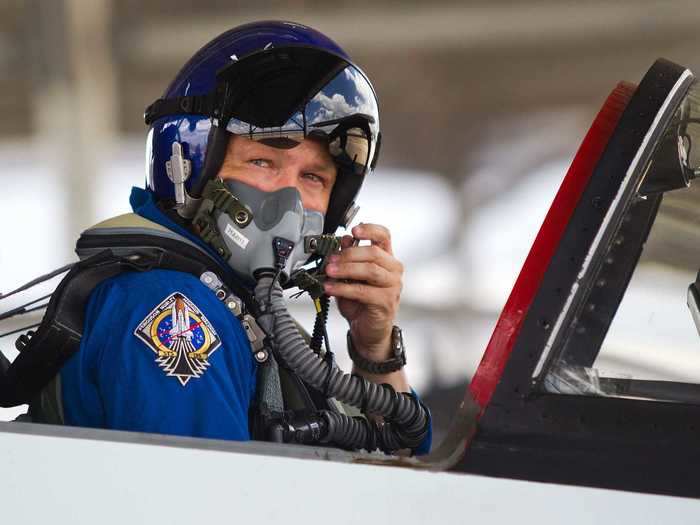
Although NASA and SpaceX are moving forward with Demo-2 during the coronavirus pandemic, quarantines are standard: They help prevent crew members from getting sick while orbiting 250 miles away from the nearest hospital.
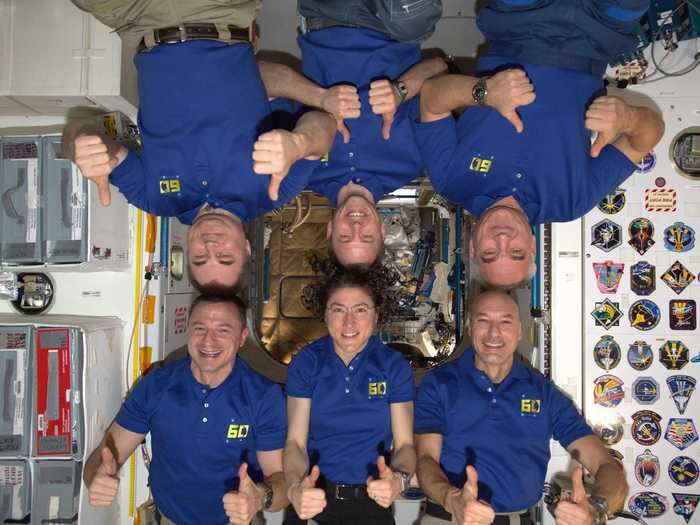
Source: Business Insider
Behnken and Hurley's mission will begin in earnest on May 13: when the astronauts check into quarantine at a living facility on the grounds of Johnson Space Center in Houston, Texas.
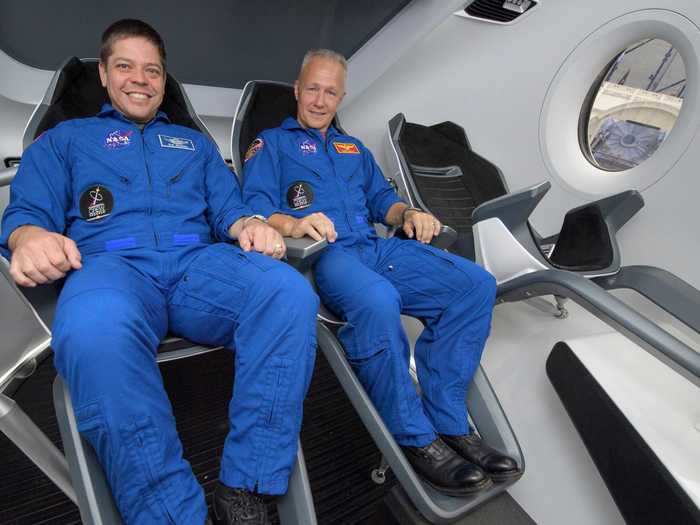
"On more than one occasion [Musk] has looked both Bob and I right in the eye and said, 'Hey, if there's anything you guys are not comfortable with or that you're seeing, please tell me and we'll fix it,'" Hurley said during a NASA briefing on May 1.
!["On more than one occasion [Musk] has looked both Bob and I right in the eye and said,](https://staticbiassets.in/thumb/msid-75723814,width-700,height-525,imgsize-667359/quoton-more-than-one-occasion-musk-has-looked-both-bob-and-i-right-in-the-eye-and-said-aposhey-if-thereaposs-anything-you-guys-are-not-comfortable-with-or-that-youaposre-seeing-please-tell-me-and-weaposll-fix-itaposquot-hurley-said-during-a-nasa-briefing-on-may-1-.jpg)
Source: Business Insider
They've also met with Musk many times to discuss ideas for Crew Dragon's improvement.
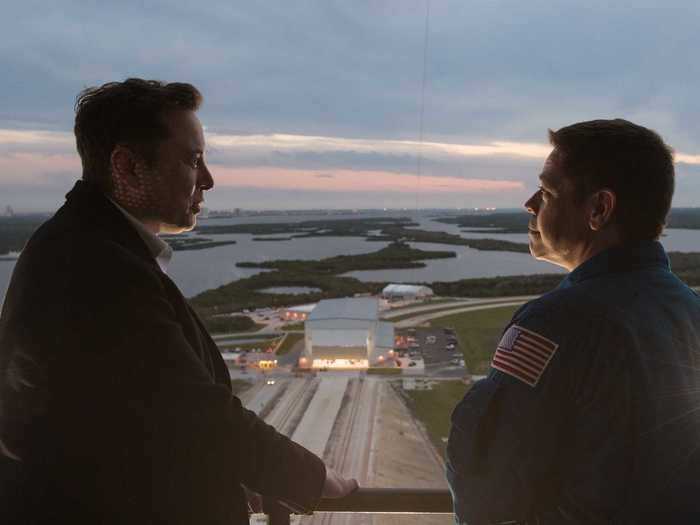
The duo, along with other astronauts, have worked closely with SpaceX to provide critical feedback about Crew Dragon.
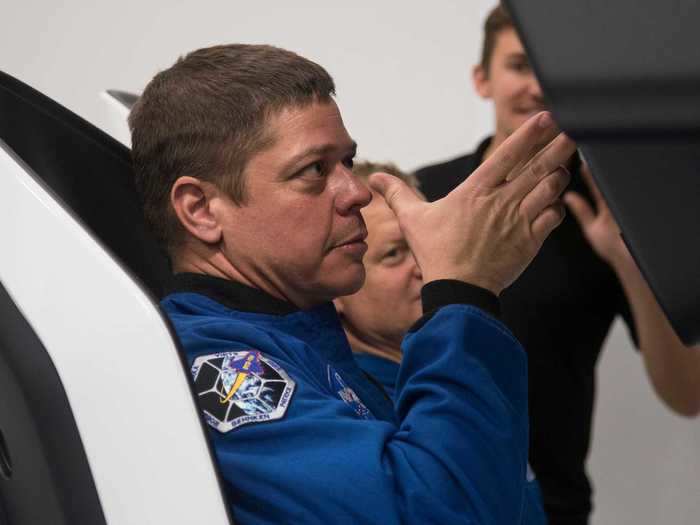
Source: Business Insider
Both are engineers who've flown on space shuttle missions to the space station. Gwynne Shotwell, SpaceX's president and COO, has described the men as "badass" test pilots, astronauts, and dads.
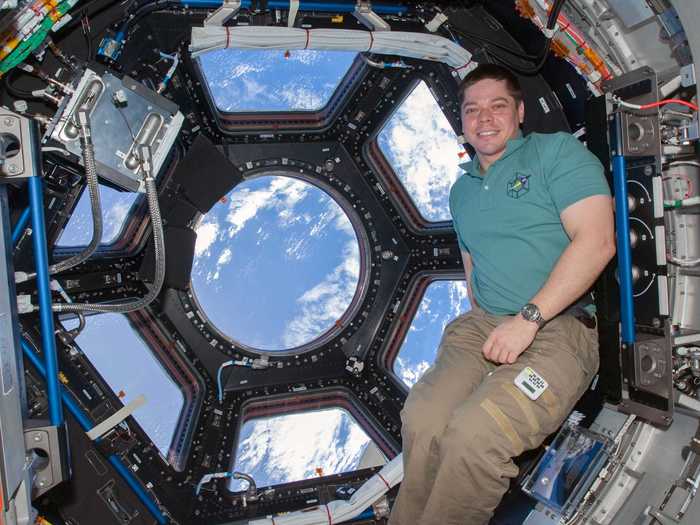
Source: Business Insider
On August 3, 2018, NASA announced it had selected Hurley and Behnken to fly SpaceX's Demo-2 mission.
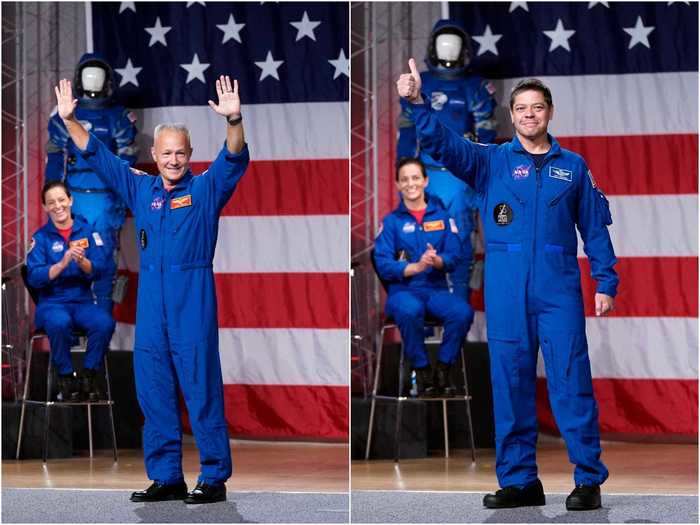
Source: Business Insider
SpaceX is the first company to jump through all of NASA's hoops to convince the agency it's ready to fly astronauts.
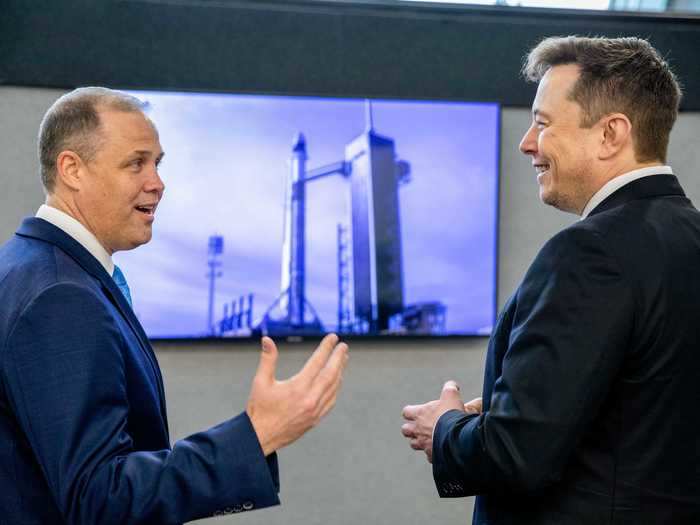
But NASA has worked with SpaceX, Boeing, and others since 2012 to build all-new American spaceships through the Commercial Crew Program.
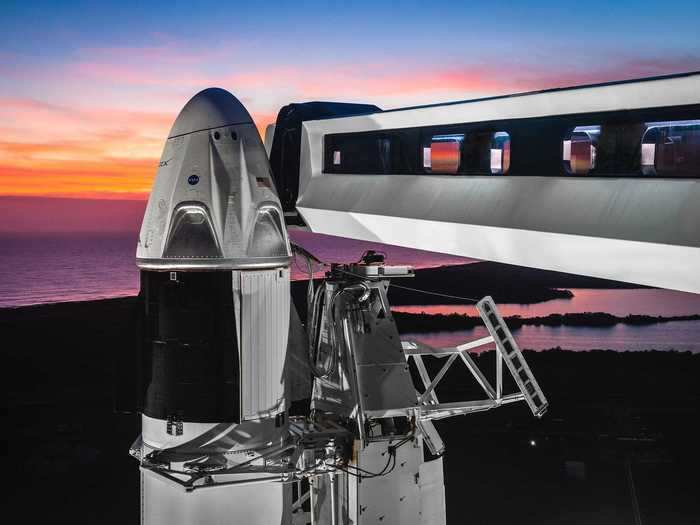
But Russia has made use of its monopoly on spaceflight. When NASA still launched space shuttles, a round-trip ticket on Soyuz cost about $20 million. In May, NASA agreed to pay Russia more than $90 million per Soyuz seat.
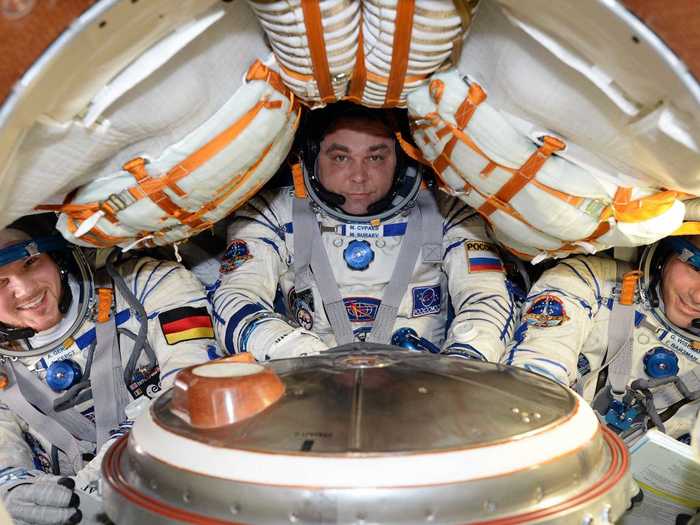
Sources: Business Insider, Irene Klotz/Aviation Week
Soyuz is necessary to get astronauts to and from the International Space Station, which not only represents a $100 billion US investment, but is a football-field-size laboratory where NASA performs research for future crewed missions to the moon and Mars.
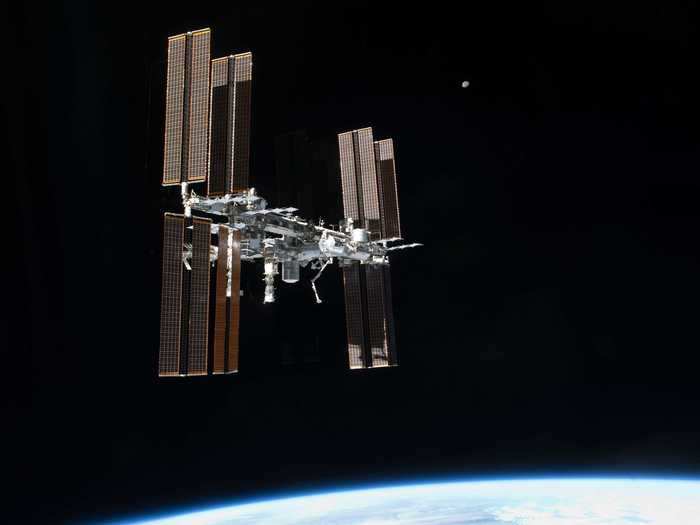
Since then, the only approved ride for NASA astronauts to and from space has been Russia's Soyuz launch system.
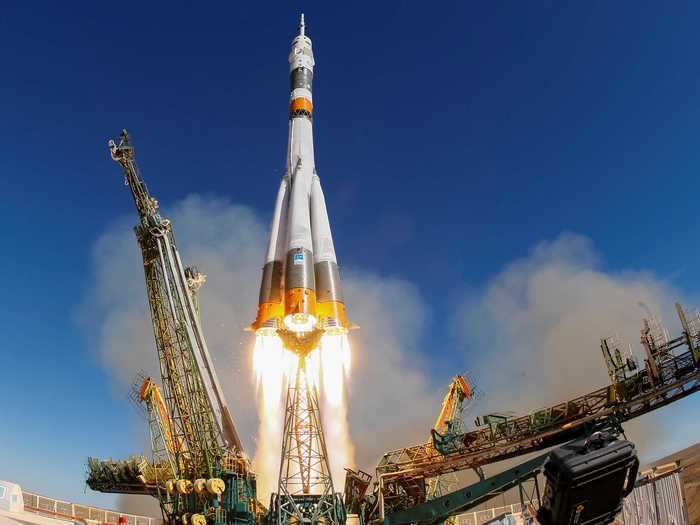
Source: Business Insider
The stakes are immense for NASA as well as SpaceX. In July 2011, NASA flew its last space shuttle mission, effectively ending crewed spaceflight from American soil.
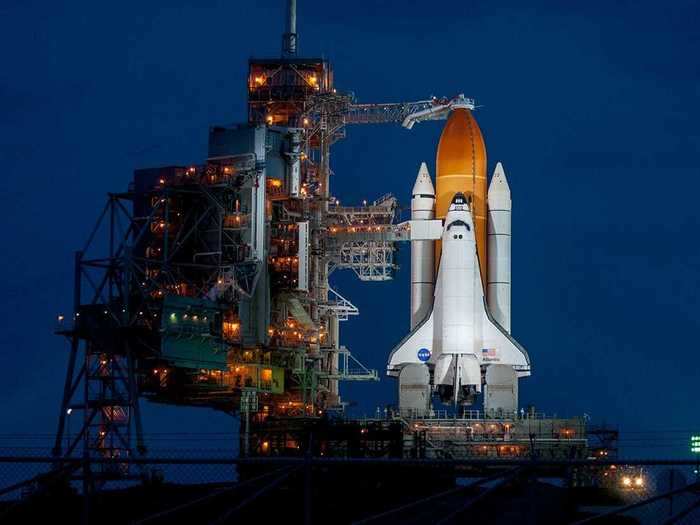
On May 27 at 4:33 p.m. ET, the two men are schedule ride SpaceX's Crew Dragon ship into orbit — a risky test flight called Demo-2 — and become SpaceX's first human passengers.
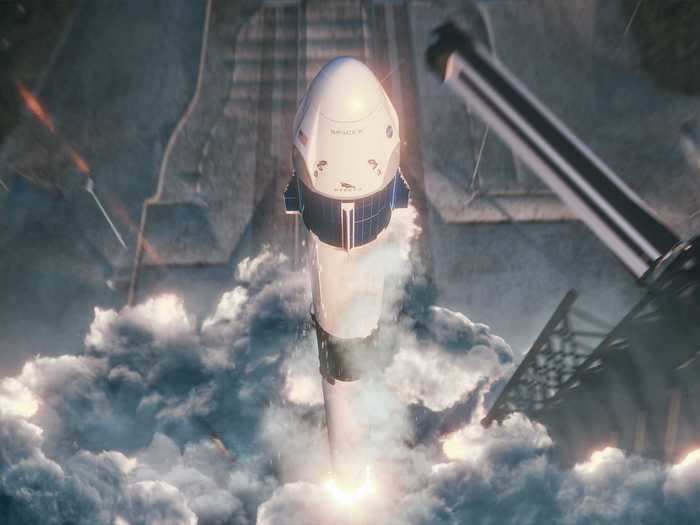
Source: Business Insider
NASA astronauts Doug Hurley and Bob Behnken are poised to make spaceflight history, both for the US and SpaceX.
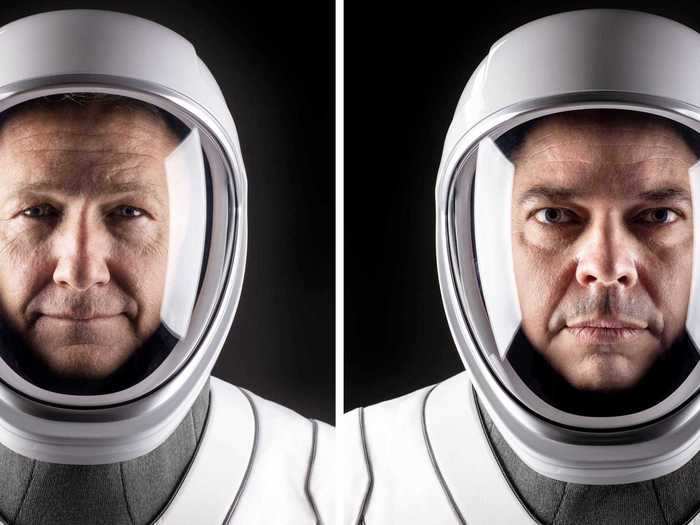
READ MORE ARTICLES ON
Popular Right Now
Popular Keywords
- India’s wearables market decline
- Vivo V40 Pro vs OnePlus 12R
- Nothing Phone (2a) Plus vs OnePlus Nord 4
- Upcoming smartphones launching in August
- Nothing Phone (2a) review
- Current Location in Google
- Hide Whatsapp Messages
- Phone is hacked or not
- Whatsapp Deleted Messages
- Download photos from Whatsapp
- Instagram Messages
- How to lock facebook profile
- Android 14
- Unfollowed on Instagram
Advertisement
